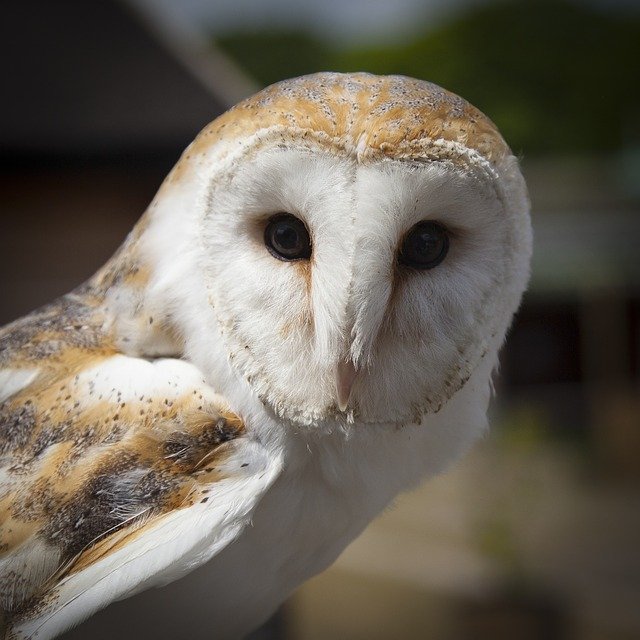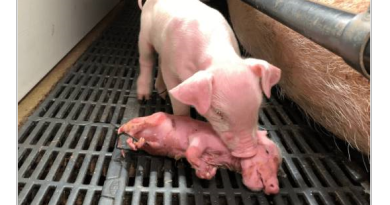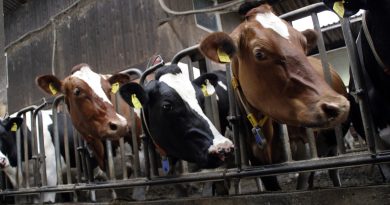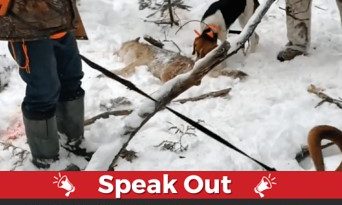New Restrictions on Rodenticide Use in BC to Help Save Wildlife
Image by Lubos Houska from Pixabay
Effective July 21, 2021, the province of BC issued a temporary ban on the widespread sale and use of second-generation anticoagulent rodenticides (SGARS). These include poisons such as Brodifacoum, Bromadiolone and Difethialone. SGARS are cruel poisons that affect more than the rodents they target. The government’s intent with its new rules is to help protect owls and other wildlife from secondary poisoning. The government says it will use the time to do a scientific review and step up the promotion of alternatives.
This post is intended to help promote awareness of the issues and new rules because these poisons have been widely used in a variety of places where it is no longer allowed and have caused considerable harm to wildlife. You may have seen black boxes in your condo or apartment building that contain such poisons or perhaps in your workplace or maybe you have been using them at home. The new ban is so recent people may just be unaware of it.
We want you to know there is a hotline you can go to report environmental poisonings if you suspect these poisons are being used where it is now illegal. It is 1-877-952-7277 (RAAP), a line designated for reporting known or suspected violations of fisheries, wildlife or environmental protection laws. It allows you to do so anonymously. You can also go online to:
Before you call, you should know that the restrictions have some limitations. There are exemptions for what the government deems essential services and a planned temporary phase in of the restrictions for the agricultural sector. The exemptions apply to services that include:
- Health & Health Services
- Public Safety
- Critical Infrastructure
- Food and Agriculture Service Providers
- Transportation
- Sanitation
- Communictions & Information Technology
- Corononers & Mortuary Related Services
Services in the above areas can still purchase and use SGARS, despite the devastating impact of the poisons.
Alternative approaches exist. Yasmin Abidi of North Vancouver, who first drew attention to this issue, notes that in the U.S. there is a product available called ContraPest, which interferes with the ability of rodents to reproduce. It is both more humane and effective. One study has shown a result of an 80 to 90 percent reduction of rodents where it was used. It also has the benefit of not affecting non-target species.
Below is a recent article about this issue that appeared in the North Shore News and a Government webinar with more detail on the new rules we have described.
We hope you can spread the word, and help get these poisons out of the places where they are no longer allowed by reporting them.
There’s also a petition started by Abidi that you can sign by clicking the “Take Action” button.
And don’t forget, you can call and report suspected illegal use!
FURTHER INFORMATION ON RODENTICIDE RESTRICTIONS
From the North Shore News, July 28, 2021
Owls Still at Risk Despite Rat Poison Ban, North Van Activist Says
Article by: Brent Richter
…The province’s partial and temporary ban on rat poisons, which have a habit of killing raptors and other predators, is a “baby step,” says the North Vancouver woman, [Yasmin Abidi], behind a 20,000-plus name petition calling for a total ban.
Environment Minister George Heyman announced last week that, effective immediately, second-generation anticoagulant rodenticides for consumer use would be banned for 18 months while the government studies longer term options. The poisons cause rodents to slowly bleed out, but any predator or scavenger that feeds on them may also die.
The government timed the ban to come into effect immediately to prevent people from stockpiling the poisons, however the ban includes exemptions for agricultural, food and health operations, including restaurants, grocery stores, hospitals, as well as food processing and warehouse facilities.
“It’s a start,” said Yasmin Abidi. “But it still isn’t taking care of the issues that I was fighting for in my own community because there are so many exemptions and it’s temporary. I’m still fighting for a permanent ban.”
Ever since Abidi helped saved the life of a poisoned owl dubbed Lucky, in Heywood Park in 2019, she’s been raising awareness and campaigning for change. She persuaded all three North Shore municipal councils to halt the use of rodenticides on their own civic properties, but cities don’t have the jurisdiction to ban the sale outright. A petition she started has now racked up almost 25,000 signatures.
Abidi said she can’t help but think Lucky’s story and the tens of thousands of people who were inspired to sign the petition helped persuade the province to make changes.
“I think it had a lot to do with it because (MLA) Susie Chant presented it to the legislature,” she said, noting Chant also worked behind the scenes to get it onto the minister’s priority list. “That’s huge.”
Although there are non-toxic rat traps on the market, Abidi is now lobbying the federal government to allow the sale of a U.S. product called ContraPest, which interferes with rodents’ ability to reproduce. Not only is it more humane, Abidi cited one study that found an 80 to 90 per cent reduction in the number of rodents where it is used.
“There’s no effect on non-target species. It’s not a hormone. It doesn’t go up the food chain,” she said. “It’s poison free. We’ll be taking care of the issue. We’ll still have rodents for our raptors to eat. … My god, doesn’t that sound like a win-win?”
Beyond the partial and temporary ban, the province is also pledging a public information campaign about the risks of rodenticides with suggestions for alternatives and scientific review of the root causes of secondary poisoning.
“We share the concerns of many British Columbians that rodenticide use is harming, and too often killing, birds, pets and other wildlife,” Heyman said in a release.
FURTHER INFORMATION ON RODENTICIDE RESTRICTIONS






